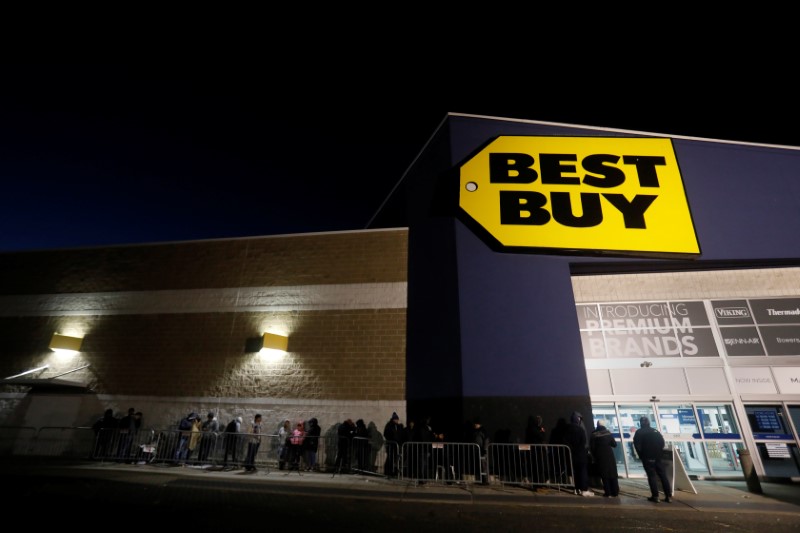Bank of America just raised its EUR/USD forecast
On Thursday, DA Davidson updated its outlook on Best Buy shares (NYSE:BBY), reducing the price target from $95.00 to $90.00, while reaffirming a Buy rating on the stock. The firm’s analyst cited a mix of factors influencing the decision, including improvements in the company’s handling of tariffs and expectations for future policy changes that could further ease tariff-related concerns. The stock, currently trading at $65.86, appears undervalued according to InvestingPro analysis, with 7 analysts recently revising earnings estimates upward.
Best Buy has seen its tariff situation improve significantly compared to the issues that affected the company’s stock performance in March, according to DA Davidson. While the company is facing challenges with weaker comparable store sales (comp), which are raising concerns about market share, Best Buy maintains strong fundamentals with a healthy 22.6% gross profit margin and has demonstrated its commitment to shareholders through 23 consecutive years of dividend payments.
Despite these challenges, Best Buy demonstrated approximately a 400 basis points (bps) improvement throughout the quarter, which, when adjusted for the Easter holiday shift, resulted in the quarter ending on a positive note. DA Davidson believes that the company is in the early stages of product cycle accelerations that are expected to benefit the entire industry, leading to better comparable sales later in the year.
DA Davidson’s analyst remains optimistic, suggesting that the current dip in Best Buy’s stock price presents an opportunity for investors to increase their holdings. The new price target of $90.00 is based on a 13 times multiple of the firm’s 2026 earnings estimate for Best Buy. The report, titled "Bakes Takes," includes insights from the firm’s recent calls and feedback, and further details on Best Buy’s quarterly performance and guidance can be found in a note released earlier that morning.
In other recent news, Best Buy has reported its first-quarter earnings for 2025, surpassing analyst expectations with an earnings per share (EPS) of $1.15, compared to the forecasted $1.07. The company also reported revenue of $8.8 billion, slightly above the expected $8.75 billion. Despite these positive results, Best Buy’s stock experienced a decline, reflecting broader market concerns. Analysts at Jefferies maintained a Buy rating on the stock but reduced the price target from $92 to $88, citing a conservative valuation approach. They noted that the company is well-positioned to handle tariffs and expects double-digit EPS growth in the coming years.
JPMorgan also adjusted its price target for Best Buy, lowering it from $110 to $95, while keeping an Overweight rating. The firm pointed to mixed financial results and a reduced guidance for the second quarter as reasons for the adjustment. Meanwhile, Truist Securities increased its price target from $64 to $69, maintaining a Hold rating, as Best Buy’s first-quarter performance aligned with their estimates. The company continues to face challenges with consumer spending patterns and competition, but efforts to mitigate tariffs and diversify sourcing have shown favorable outcomes. These recent developments indicate a cautious but optimistic outlook from analysts regarding Best Buy’s future performance.
This article was generated with the support of AI and reviewed by an editor. For more information see our T&C.
